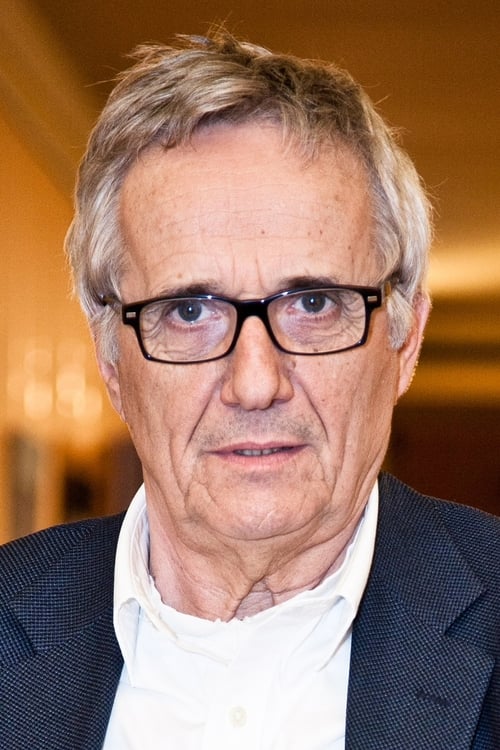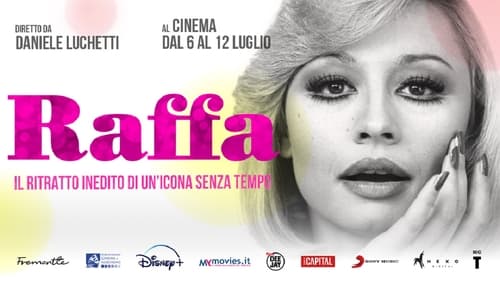
Sé stesso

Story
The 1978 kidnapping and assassination of former Italian Prime Minister Aldo Moro by Red Brigades terrorists

Screenplay
The 1978 kidnapping and assassination of former Italian Prime Minister Aldo Moro by Red Brigades terrorists

Director
The 1978 kidnapping and assassination of former Italian Prime Minister Aldo Moro by Red Brigades terrorists

Himself

Screenplay
The 1978 kidnapping and assassination of former Italian Prime Minister Aldo Moro by Red Brigades terrorists

Story
The 1978 kidnapping and assassination of former Italian Prime Minister Aldo Moro by Red Brigades terrorists

Director
The 1978 kidnapping and assassination of former Italian Prime Minister Aldo Moro by Red Brigades terrorists
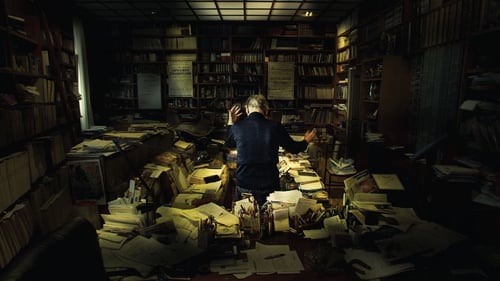
Self
A portrait of Ennio Morricone, the most popular and prolific film composer of the 20th century, the one most loved by the international public, a two-time Oscar winner and the author of over five hundred unforgettable scores.

Self
Opera Prima is a tribute and a journey through the evolution that cinema has had in Italy. Tayu Vlietstra, a pupil of Bertolucci, carries out an investigation on the first work of six of the most authoritative and beloved Italian directors. The result is an unpublished and precious document that reveals the emotions and expectations of directors grappling with their cinematic debut. Mario Monicelli, Bernardo Bertolucci, Lina Wertmüller, Marco Bellocchio, Liliana Cavani and Francesca Archibugi offer a still current evolution on the needs and difficulties of making cinema in our country.

Self
A portrait of Italy in the 60's and 70's, based on films by Marco Bellocchio.

Writer
Directed by Marco Bellocchio

Director
Directed by Marco Bellocchio
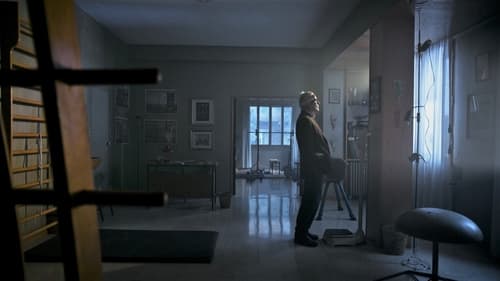
Writer
"Marx can wait" was something Camillo Bellocchio said to his twin Marco the last time they met before the former died at a young age in the heated days of 1968. This documentary is dedicated to his memory.

Self
"Marx can wait" was something Camillo Bellocchio said to his twin Marco the last time they met before the former died at a young age in the heated days of 1968. This documentary is dedicated to his memory.

Director
"Marx can wait" was something Camillo Bellocchio said to his twin Marco the last time they met before the former died at a young age in the heated days of 1968. This documentary is dedicated to his memory.
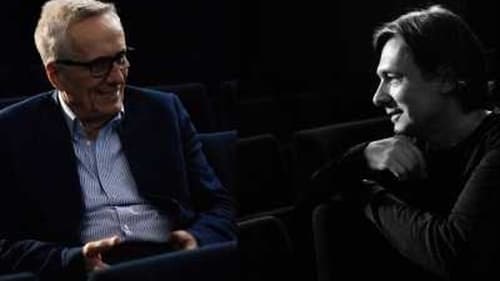
Self
A deep dive into Glauber Rocha's years exiled in Italy in the 70s. Through a collection of interviews and archives, the movie shows the making of his film Claro (1975) and his relation with European auteurs in their filmic and political views.

Self
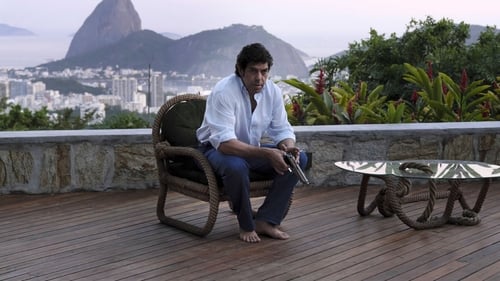
Screenstory
Palermo, Sicily, 1980. Mafia member Tommaso Buscetta decides to move to Brazil with his family fleeing the constant war between the different clans of the criminal organization. But when, after living several misfortunes, he is forced to return to Italy, he makes a bold decision that will change his life and the destiny of Cosa Nostra forever.

Screenplay
Palermo, Sicily, 1980. Mafia member Tommaso Buscetta decides to move to Brazil with his family fleeing the constant war between the different clans of the criminal organization. But when, after living several misfortunes, he is forced to return to Italy, he makes a bold decision that will change his life and the destiny of Cosa Nostra forever.

Director
Palermo, Sicily, 1980. Mafia member Tommaso Buscetta decides to move to Brazil with his family fleeing the constant war between the different clans of the criminal organization. But when, after living several misfortunes, he is forced to return to Italy, he makes a bold decision that will change his life and the destiny of Cosa Nostra forever.

Director
It is a sunny day on the river Trebbia. In the distance a patrol of German soldiers is approaching : they are nazis, guns blazing. It seems like they are chasing somebody. Tonino is the fugitive, a partisan with nothing left to do but dive into the river. This river will bring him to his real life.

Screenplay
Elena has just turned 18 and this is her first day working in a coffee bar in Bobbio, a town in the north of Italy. It's summer and the coffee bar is very busy. The first day at work is a chance for Elena to meet lots of different people. Each person has a different story to tell - not just in words but also through simple gestures and actions. These characters can sometimes be quite odd and reflect the countless nuances of the human soul.

Director
Elena has just turned 18 and this is her first day working in a coffee bar in Bobbio, a town in the north of Italy. It's summer and the coffee bar is very busy. The first day at work is a chance for Elena to meet lots of different people. Each person has a different story to tell - not just in words but also through simple gestures and actions. These characters can sometimes be quite odd and reflect the countless nuances of the human soul.

Director
Andrea Chénier is a verismo opera in four acts by Umberto Giordano, set to an Italian libretto by Luigi Illica, and first performed on 28 March 1896 at La Scala, Milan. The story is based loosely on the life of the French poet André Chénier (1762–1794), who was executed during the French Revolution.
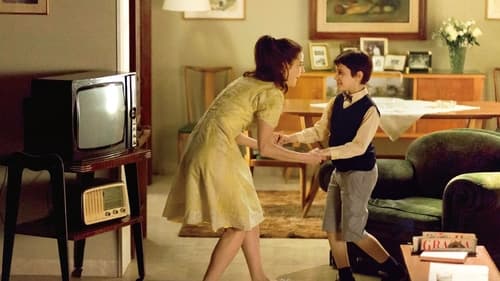
Screenplay
Turin, 1969. Nine-year-old Massimo’s idyllic childhood is shattered by the mysterious death of his mother. The young boy refuses to accept this brutal loss, even if the priest says she is now in Heaven. Years later in the 90s, adult Massimo has become an accomplished journalist. After reporting on the war in Sarajevo, he begins to suffer from panic attacks. As he prepares to sell his parents’ apartment, Massimo is forced to relive his traumatic past. Compassionate doctor Elisa could help tormented Massimo open up and confront his childhood wounds…

Director
Turin, 1969. Nine-year-old Massimo’s idyllic childhood is shattered by the mysterious death of his mother. The young boy refuses to accept this brutal loss, even if the priest says she is now in Heaven. Years later in the 90s, adult Massimo has become an accomplished journalist. After reporting on the war in Sarajevo, he begins to suffer from panic attacks. As he prepares to sell his parents’ apartment, Massimo is forced to relive his traumatic past. Compassionate doctor Elisa could help tormented Massimo open up and confront his childhood wounds…

Writer
In the theater of a small village, rehersals are taking place for a show based on the opera I Pagliacci. There is no orchestra, just a piano and the singers. Amongs the few people in the audience there is the mother of the singer, a rich local lady and financer of the project, the sister, and a few other people involved in the show. During a dinner party at this rich lady’s house, a hiposis session takes place, where rancor and pain emerge from the brother and sister towards their mother and their impossibility of overcoming them.

Director
In the theater of a small village, rehersals are taking place for a show based on the opera I Pagliacci. There is no orchestra, just a piano and the singers. Amongs the few people in the audience there is the mother of the singer, a rich local lady and financer of the project, the sister, and a few other people involved in the show. During a dinner party at this rich lady’s house, a hiposis session takes place, where rancor and pain emerge from the brother and sister towards their mother and their impossibility of overcoming them.
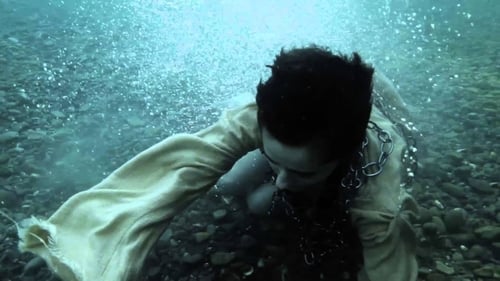
Screenplay
Northern Italy, 17th century. In a monastery, a nun accused of witchcraft tries to seduce a young confessor who refuses to yield to his searing temptation.

Director
Northern Italy, 17th century. In a monastery, a nun accused of witchcraft tries to seduce a young confessor who refuses to yield to his searing temptation.

Self
A documentary focused on film critic Lino Micciché, as seen from the point of view of his friends and his son Francesco.
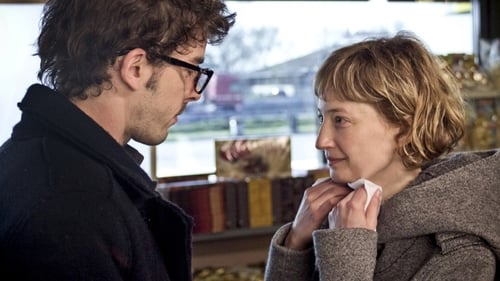
Story
A mosaic of several intertwined stories questioning the meaning of life, love and hope, set during the last six days in the life of Eluana Englaro, a young woman who spent 17 years in a vegetative state.

Screenplay
A mosaic of several intertwined stories questioning the meaning of life, love and hope, set during the last six days in the life of Eluana Englaro, a young woman who spent 17 years in a vegetative state.

Director
A mosaic of several intertwined stories questioning the meaning of life, love and hope, set during the last six days in the life of Eluana Englaro, a young woman who spent 17 years in a vegetative state.
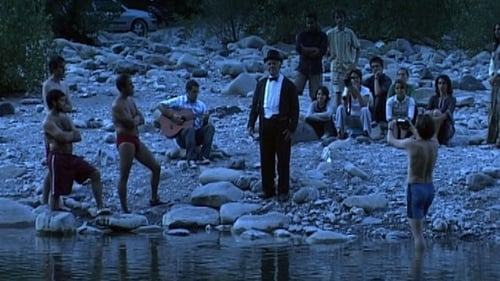
Writer
A family story in the city of Bobbio between 1999 and 2008.

Director
A family story in the city of Bobbio between 1999 and 2008.

Director
The tragic story revolves around the licentious Duke of Mantua, his hunch-backed court jester Rigoletto, and Rigoletto's beautiful daughter Gilda. The opera's original title, La maledizione (The Curse), refers to a curse placed on both the Duke and Rigoletto by a courtier whose daughter the Duke has seduced with Rigoletto's encouragement. The curse comes to fruition when Gilda falls in love with the Duke and sacrifices her life to save him from assassins hired by her father.

Self
Until the 1970s, Italian cinema dominated the international scene, even competing with Hollywood. Then, in just a few years, came its rapid decline, the flight of our greatest producers, a crisis among the best writer-directors, the collapse of production. But what are the true causes and circumstances of this decline? In an attempt to provide an answer to this question, Di Me Cosa Ne Sai strives to depict this great cultural change. Begun as a loving examination of Italian cinema, the film transformed into a docu-drama that alternates between interviews with the great names of the past and fragments of cultural and political life of the last 30 years. It is a travel diary that shows Italy from north to south, through movie theatres; television-addicted kids; Berlusconi and Fellini; shopping centers; TV news editors; stories of impassioned film exhibitors and directors who fight for their films; and interviews with itinerant projectionists and great European directors.
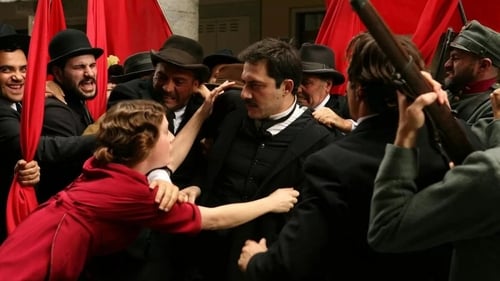
Writer
The story of the descent into madness of Mussolini's secret first wife, Ida Dasler, who was seduced by his passion and vigour but blind to the fascist dictator's many flaws. A historical drama with the passion, lyricism and tragedy of a classical Italian opera. Nominated for the Palme d'Or at the 2009 Cannes Film Festival.

Director
The story of the descent into madness of Mussolini's secret first wife, Ida Dasler, who was seduced by his passion and vigour but blind to the fascist dictator's many flaws. A historical drama with the passion, lyricism and tragedy of a classical Italian opera. Nominated for the Palme d'Or at the 2009 Cannes Film Festival.

Writer
An early version of Marco Bellocchio's Sorelle Mai

Director
An early version of Marco Bellocchio's Sorelle Mai

Self
After shooting to fame with Federico Fellini’s “La Dolce Vita” (1960), actor Marcello Mastroianni (1924-1996) starred in more than 160 films in his nearly half-a-century career. Directors Mario Canale and Annarosa Morri look into the melancholic charm of one of the most famous Italian actors through interviews with his two daughters, Barbara and Chiara; directors Fellini and Luchino Visconti; actresses Claudia Cardinale and Anouk Aimee; and in archival footage of Mastroianni himself. The subject matter ranges from Mastroianni’s passion for kidney-bean pasta and his addiction to the telephone to his famous laziness, humility and talent. Shown in black-and-white, Mastroianni — elegantly holding a cigarette in between his fingers — is undeniably the dandy.

Writer
Franco Elica is a film director casting a remake of a pious melodrama in Rome. He's melancholy, heading south for a break. On a beach, he meets a man who films weddings and is roped into helping film the wedding of the daughter of a severe and imperious prince. The wedding is one of convenience - the prince needs money, the groom is a mama's boy. Elica is attracted to the bride, Boda, and tries to convince her not to marry. No matter how outrageous his behavior, the prince keeps Elica on as the wedding director. As the wedding approaches, what's real blurs with Elica's imagination. Is he mad?

Director
Franco Elica is a film director casting a remake of a pious melodrama in Rome. He's melancholy, heading south for a break. On a beach, he meets a man who films weddings and is roped into helping film the wedding of the daughter of a severe and imperious prince. The wedding is one of convenience - the prince needs money, the groom is a mama's boy. Elica is attracted to the bride, Boda, and tries to convince her not to marry. No matter how outrageous his behavior, the prince keeps Elica on as the wedding director. As the wedding approaches, what's real blurs with Elica's imagination. Is he mad?

Himself
How the cinema industry does not respect the author's work as it was conceived, how manipulates the motion pictures in order to make them easier to watch by an undemanding audience or even how mutilates them to adapt the original formats and runtimes to the restrictive frame of the television screen and the abusive requirements of advertising. (Followed by “Filmmakers in Action.”)

Interviews with directors Marco Bellocchio and Carlo Lizzani, assistant director Maurizio Ponzi, and editor Roberto Perpignani.
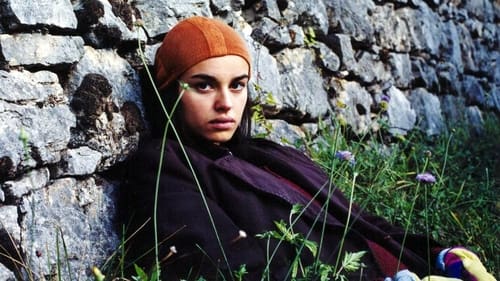
Writer
Three Italian soldiers volunteer to go to Kosovo after the war, where they risk their lives to help a young girl.

Self
Various generations of filmmakers talk about what cinema means for them.

Himself
A documentary about the making of "Buongiorno, notte" and the films and politics of director Marco Bellocchio.
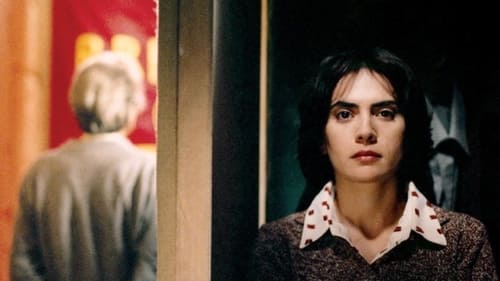
Producer
The 1978 kidnapping and murder of Aldo Moro, president of the most important political party in Italy at the time, Democrazia Cristiana, as seen from the perspective of one of his assailants -- a conflicted young woman in the ranks of the Red Brigade.

Writer
The 1978 kidnapping and murder of Aldo Moro, president of the most important political party in Italy at the time, Democrazia Cristiana, as seen from the perspective of one of his assailants -- a conflicted young woman in the ranks of the Red Brigade.

Director
The 1978 kidnapping and murder of Aldo Moro, president of the most important political party in Italy at the time, Democrazia Cristiana, as seen from the perspective of one of his assailants -- a conflicted young woman in the ranks of the Red Brigade.

Self
Documentary about Italian film screenwriter Cesare Zavattini

Writer
A child in anaphylactic shock after an insect sting is brought by her father to a doctor, a foreigner who doesn't speak the language well and is looked at by the town with diffidence.

Director
A child in anaphylactic shock after an insect sting is brought by her father to a doctor, a foreigner who doesn't speak the language well and is looked at by the town with diffidence.

Producer
A celebrated painter receives a visit from a cardinal's assistant, who informs him that his mother could become a saint.

Screenplay
A celebrated painter receives a visit from a cardinal's assistant, who informs him that his mother could become a saint.

Director
A celebrated painter receives a visit from a cardinal's assistant, who informs him that his mother could become a saint.

Writer
An encounter between two women: Sonia confesses to Elena that she would like to escape her town and her friend promises to help her.

Director
An encounter between two women: Sonia confesses to Elena that she would like to escape her town and her friend promises to help her.

A strange encounter with an unknown man from a story a harpist tells to his friend during a recording session.

Director

Writer
A young maestro conducts rehearsals with a male chorus. He is frustrated and feels that a female voice is missing.

Director
A young maestro conducts rehearsals with a male chorus. He is frustrated and feels that a female voice is missing.

Writer
A short film.

Director
A short film.

Writer
Based on Anton Chekhov's play.

Director
Based on Anton Chekhov's play.

Director
A young man lives as a recluse in a monastery. In a sort of ecstasy, he begins to talk to nature and recite the gospels.
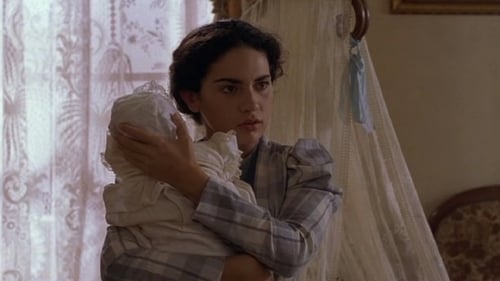
Director
Rome, early 20th century: a wealthy psychiatrist, who runs an asylum for women and lacks imagination in his practice, must find a wet nurse for his infant when his wife panics after childbirth. He brings a peasant, Annette, to Rome, forcing her to leave her own baby behind. To the consternation and increasing anger of the wife, the nanny immediately bonds with the couple's infant son - Annette's a natural. Against a backdrop of leftist demonstrations, Annette, who's lover is a teacher jailed for subversion, asks the doctor to teach her to read and write. Her nature and curiosity, the doctor's bland ideas, he and his wife's problems, and the two infants bring the story to a head.
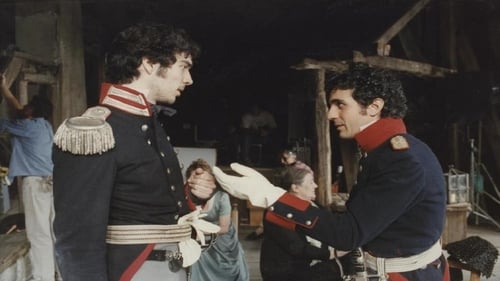
Producer
The Prince of Homburg, disobeys orders and leads a cavalry charge in battle against the Swedes, which leads to victory. He is court martialled however for disobeying orders and sentenced to death. His love who is now to be betrothed to the King of Sweden, following his execution appeals to the Elector, her uncle, on his behalf, as do his comrades in battle. He must also contend with his own desire to live and conflicting sense of honour.

Screenplay
The Prince of Homburg, disobeys orders and leads a cavalry charge in battle against the Swedes, which leads to victory. He is court martialled however for disobeying orders and sentenced to death. His love who is now to be betrothed to the King of Sweden, following his execution appeals to the Elector, her uncle, on his behalf, as do his comrades in battle. He must also contend with his own desire to live and conflicting sense of honour.

Director
The Prince of Homburg, disobeys orders and leads a cavalry charge in battle against the Swedes, which leads to victory. He is court martialled however for disobeying orders and sentenced to death. His love who is now to be betrothed to the King of Sweden, following his execution appeals to the Elector, her uncle, on his behalf, as do his comrades in battle. He must also contend with his own desire to live and conflicting sense of honour.

Writer
A two year old girl, surprised and moved, watches her past materialize via amateur footage on the family TV set. She watches without regrets or nostalgia: it's normal. But it's her own story which began two years before. A short film by Marco Bellocchio.

Director
A two year old girl, surprised and moved, watches her past materialize via amateur footage on the family TV set. She watches without regrets or nostalgia: it's normal. But it's her own story which began two years before. A short film by Marco Bellocchio.

Director
This film project was made in 1996 to commemorate the 100th anniversary of the birth of the cinema.

Director
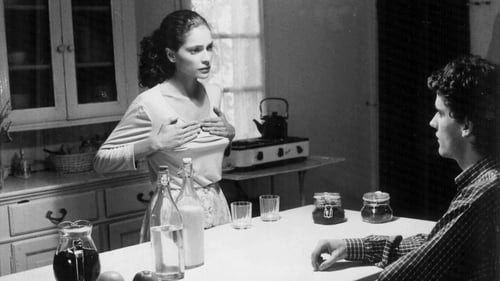
Producer
This European existential drama utilizes complex symbols inspired by abstract psychological theories to explore the effects and reasons behind a young classical actor's decision to stop talking. No one knows why Massimo has vowed to stop talking. Other than speaking dialog from classical plays, Massimo refuses to say a single word. His father, a classic-literature professor believes it reflects to a disappointing love affair. His new girlfriend thinks Massimo is rebelling against his mother, a poet. A director learns of Massimo and commissions his mother to write a play about him. Though Massimo plays himself in the play, and does speak, he returns to silence when the play is finished.

Director
This European existential drama utilizes complex symbols inspired by abstract psychological theories to explore the effects and reasons behind a young classical actor's decision to stop talking. No one knows why Massimo has vowed to stop talking. Other than speaking dialog from classical plays, Massimo refuses to say a single word. His father, a classic-literature professor believes it reflects to a disappointing love affair. His new girlfriend thinks Massimo is rebelling against his mother, a poet. A director learns of Massimo and commissions his mother to write a play about him. Though Massimo plays himself in the play, and does speak, he returns to silence when the play is finished.

Director
In a train station caffè, a man ill with cancer and an indifferent customer converse. Based on a play by Luigi Pirandello.
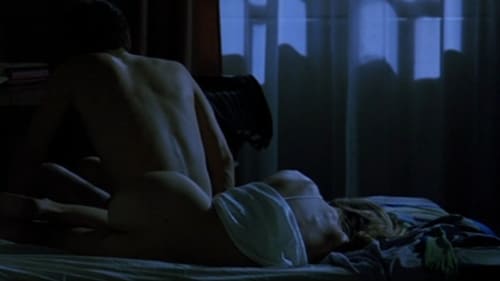
Screenplay
A girl and her art professor get trapped inside a castle-museum after it closes at night. After a little resistance she agrees to have sex with him, but then she sues the professor for rape. The professor will have to prove his innocence.

Director
A girl and her art professor get trapped inside a castle-museum after it closes at night. After a little resistance she agrees to have sex with him, but then she sues the professor for rape. The professor will have to prove his innocence.
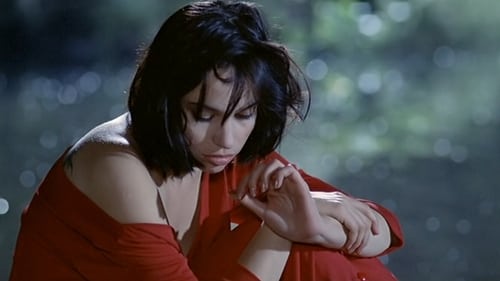
Editor
The freshly graduated psychiatrist David shall deliver an opinion about young Maddalena, who's on trial for murdering a hunter. She claims she's a witch and acted on behalf of the devil.

Writer
The freshly graduated psychiatrist David shall deliver an opinion about young Maddalena, who's on trial for murdering a hunter. She claims she's a witch and acted on behalf of the devil.

Director
The freshly graduated psychiatrist David shall deliver an opinion about young Maddalena, who's on trial for murdering a hunter. She claims she's a witch and acted on behalf of the devil.

Writer
An Italian high school student becomes infatuated with a woman he sees outside his class window. Her fiancée is in jail for being involved in a radical movement, and she spends much time in court providing moral support. At first she resists the student's advances, but eventually begins an affair with him. Their situation is condemned by her family and his father, who is the woman's psychologist.

Story
An Italian high school student becomes infatuated with a woman he sees outside his class window. Her fiancée is in jail for being involved in a radical movement, and she spends much time in court providing moral support. At first she resists the student's advances, but eventually begins an affair with him. Their situation is condemned by her family and his father, who is the woman's psychologist.

Director
An Italian high school student becomes infatuated with a woman he sees outside his class window. Her fiancée is in jail for being involved in a radical movement, and she spends much time in court providing moral support. At first she resists the student's advances, but eventually begins an affair with him. Their situation is condemned by her family and his father, who is the woman's psychologist.
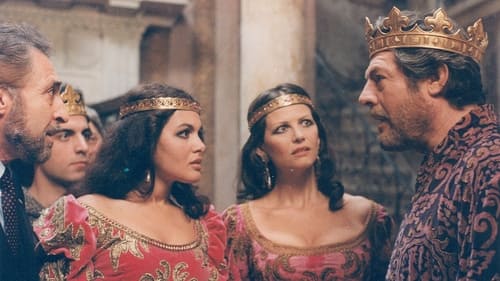
Screenplay
Deranged after a fall from a horse, a man has lived for twenty years in a castle laboring under the delusion that he is Holy Roman Emperor Henry IV. His psychiatrist concocts an elaborate scheme to shock him out of his medieval reverie.

Director
Deranged after a fall from a horse, a man has lived for twenty years in a castle laboring under the delusion that he is Holy Roman Emperor Henry IV. His psychiatrist concocts an elaborate scheme to shock him out of his medieval reverie.
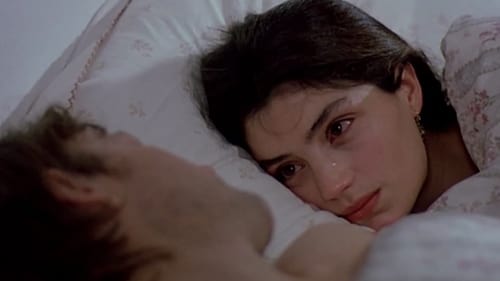
Story
A rich Italian's shocking suicide means different things to his twin brother, mother and pregnant lover.

Screenplay
A rich Italian's shocking suicide means different things to his twin brother, mother and pregnant lover.

Director
A rich Italian's shocking suicide means different things to his twin brother, mother and pregnant lover.

Self
Traces the life of Anna Magnani, her creations, her successes, her triumphs, her boycotted career, her nonconformism, her anxieties, her generosity ... Punctuated with photos that tell her career in theater and cinema, Extracts of films, this documentary portrait also gives the floor to his friends and relatives, from Roberto Rossellini to Marcello Mastroianni, through Federico Fellini.

Writer
Director Marco Bellocchio returns with his family to his homeland, in the province of Piacenza. The journey is an opportunity to confront oneself with one's past, as well as with the nostalgia of an era.

Director
Director Marco Bellocchio returns with his family to his homeland, in the province of Piacenza. The journey is an opportunity to confront oneself with one's past, as well as with the nostalgia of an era.

Screenplay
The story of a turbulent relationship between Elisa, a mentally unstable young woman, and her psychiatrist who, meets her after she's hospitalized when she faints in a subway station. He advises her to stay in the hospital, but she wants to feel free.
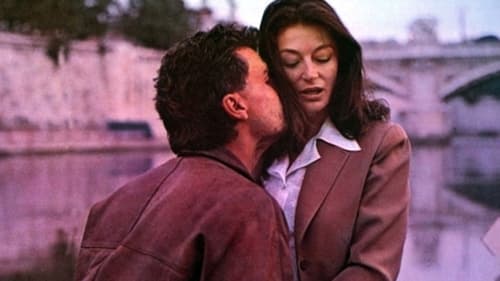
Story
Mauro, a judge, is worried about his older sister Marta, who took care of him since he was a boy, and now suffers from mental illness and suicidal thoughts. She seems to recover from her depression when Mauro acquaints her with Giovanni, a brilliant actor at the edge of legality. However, Mauro becomes unconsciously jealous of their relationship and tries to get Giovanni arrested.

Screenplay
Mauro, a judge, is worried about his older sister Marta, who took care of him since he was a boy, and now suffers from mental illness and suicidal thoughts. She seems to recover from her depression when Mauro acquaints her with Giovanni, a brilliant actor at the edge of legality. However, Mauro becomes unconsciously jealous of their relationship and tries to get Giovanni arrested.

Director
Mauro, a judge, is worried about his older sister Marta, who took care of him since he was a boy, and now suffers from mental illness and suicidal thoughts. She seems to recover from her depression when Mauro acquaints her with Giovanni, a brilliant actor at the edge of legality. However, Mauro becomes unconsciously jealous of their relationship and tries to get Giovanni arrested.

Director
Directed by a group of avant-garde filmmakers, the film is an investigation of the less edifying aspects of film industry.
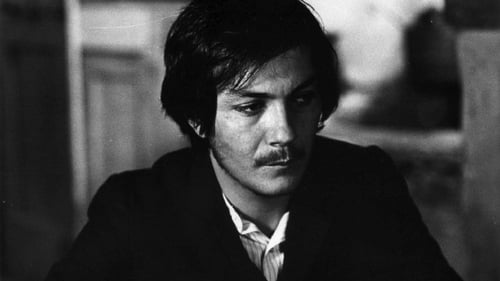
Screenplay
A young writer is trapped between his awful actress mother and the knowledge that he has only a mediocre talent as a playwright and almost no force of character.

Director
A young writer is trapped between his awful actress mother and the knowledge that he has only a mediocre talent as a playwright and almost no force of character.
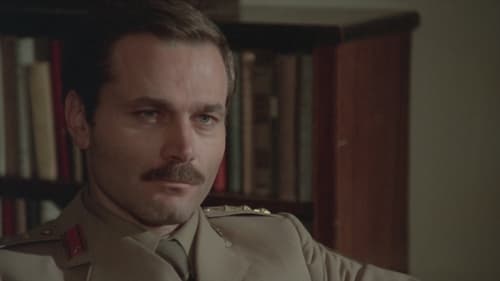
Director
The drawbacks and difficulties of military life are explored in this film. Paolo Passeri is a college graduate, somewhat spoiled, somewhat effete, who finds himself in an officer training program under the stern martinet, Captain Asciutto. He gradually becomes acclimated to the military mind-set, and when the Captain's wife decides to take a romantic interest in him, he does not report her dangerous peculiarities to anyone.

Himself (uncredited)
Via the New York Times: "This documentary was distilled from a 3 1/2-hour television film Nessuno o Tutti, to make the point that many inmates now in mental hospitals could be released without harm to society, and to their advantage. Both patients -- chosen for their ability to talk before a camera -- and sponsors in the community at large are interviewed to promote the concept of the patients' re-integration into the outside world. Three men (Paolo, Angelo, and Marco -- a mentally handicapped youth) talk to the interviewers about their own perspectives, and while the success of the mentally handicapped working at one plant is illustrated, the implied excesses of hospitals run by the Catholic Church are also discussed. Filming was not allowed inside those institutions."

Director
Via the New York Times: "This documentary was distilled from a 3 1/2-hour television film Nessuno o Tutti, to make the point that many inmates now in mental hospitals could be released without harm to society, and to their advantage. Both patients -- chosen for their ability to talk before a camera -- and sponsors in the community at large are interviewed to promote the concept of the patients' re-integration into the outside world. Three men (Paolo, Angelo, and Marco -- a mentally handicapped youth) talk to the interviewers about their own perspectives, and while the success of the mentally handicapped working at one plant is illustrated, the implied excesses of hospitals run by the Catholic Church are also discussed. Filming was not allowed inside those institutions."
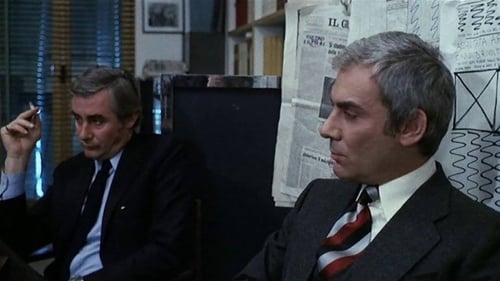
Director
1972, Milan. Just a few days before the general elections, a young girl from an esteemed family is raped and murdered. Bizanti, editor-in-chief of a conservative newspaper, tries to derail the official police investigation in order to help the right-wing candidates supported by his boss to win the elections.

Writer
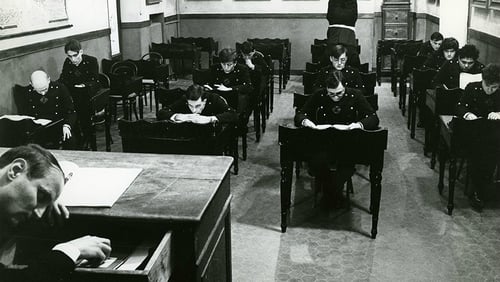
Writer
In 1958 Angelo, a rich and spoiled boy, enters a religious school, where students are tired of its vice-rector, and the strict rules and old-fashioned teaching methods of priests. Soon, Angelo exerts strong leadership among his peers and incites turmoil among them, helped by intellectual Franco and shy Camma. They expel the prefect from the school, organize a Grand Guignol show, and disappear the corpse of an old professor.

Director
In 1958 Angelo, a rich and spoiled boy, enters a religious school, where students are tired of its vice-rector, and the strict rules and old-fashioned teaching methods of priests. Soon, Angelo exerts strong leadership among his peers and incites turmoil among them, helped by intellectual Franco and shy Camma. They expel the prefect from the school, organize a Grand Guignol show, and disappear the corpse of an old professor.

Predicatore (voce)
A phrophetic Film about the fundamental problem of our times, that automatization of the production process ultimately eliminates human labour. In this fact lies the potential for the marxist liberation of the productive forces and the and the industrial genocide.
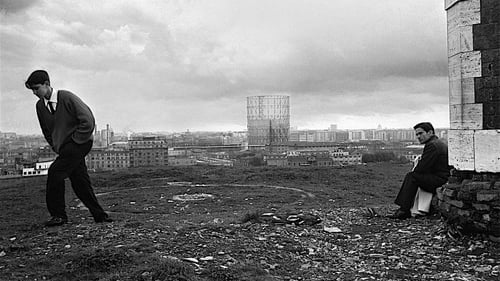
Lecturer (segment "Discutiamo, discutiamo")
Five short stories with contemporary settings. In New York, people are indifferent to derelicts sleeping on sidewalks, to a woman's assault in front of an apartment building, and to a couple injured in a car crash. A man, stripped of his identity, dies in bed with actors expressing his agony. A cheerful, innocent young man walking a city street in a time of war pays a price for this innocence. A couple talks about cinema while it watches another couple talk of love and truth on the eve of one character's return to Cuba. Striking students take over a university classroom; an argument follows about revolution or incremental change.

Director
A group of young guys occupies a university. Young people are fighters student revolution of the Sixties, and now that they have in hand the building, the guys begin to argue among themselves, bringing new ideas and changes. However, they do nothing but talk nonsense, not changing anything in society.

Writer
Five short stories with contemporary settings. In New York, people are indifferent to derelicts sleeping on sidewalks, to a woman's assault in front of an apartment building, and to a couple injured in a car crash. A man, stripped of his identity, dies in bed with actors expressing his agony. A cheerful, innocent young man walking a city street in a time of war pays a price for this innocence. A couple talks about cinema while it watches another couple talk of love and truth on the eve of one character's return to Cuba. Striking students take over a university classroom; an argument follows about revolution or incremental change.

Director
Five short stories with contemporary settings. In New York, people are indifferent to derelicts sleeping on sidewalks, to a woman's assault in front of an apartment building, and to a couple injured in a car crash. A man, stripped of his identity, dies in bed with actors expressing his agony. A cheerful, innocent young man walking a city street in a time of war pays a price for this innocence. A couple talks about cinema while it watches another couple talk of love and truth on the eve of one character's return to Cuba. Striking students take over a university classroom; an argument follows about revolution or incremental change.

Director
Milan, 1 May 1969. A propaganda film produced by the communist organization Servire il popolo.

Director
A documentary set in Paola, in Calabria, about the fight to occupy housing.
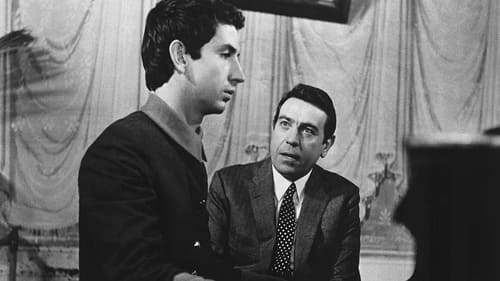
Writer
A pair of working class lovers - a secretary and an accountant, scheme to marry into the rich landed gentry.

Director
A pair of working class lovers - a secretary and an accountant, scheme to marry into the rich landed gentry.

Self
In this documentary, giants of italian cinema such as Rossellini, De Sica, Fellini and Zavattini talk about the importance of cinema after WW2, and about huge moments of social rebellion. This movie gives the floor to the creators of italian neorealism.

Cavani made her first full-length feature film in 1966 with Francis of Assisi (Francesco d'Assisi). Made for television and aired in two parts, it was deeply influenced by the style of Rossellini and the atmosphere typical of the films of Pasolini. Made in a period of political unrest, it was to become a kind of manifesto of dissenting Catholicism. Starring Lou Castel, it portrays Francis of Assisi as a slightly depressed protestor and an avid, albeit mad, supporter of armed brotherhood. The ideal defender of the 1968 student movement. The film was a great success, but also triggered many negative reactions. It was called "heretical, blasphemous and offensive for the faith of the Italian people". It was the first of many polemical reactions to Cavani's work.
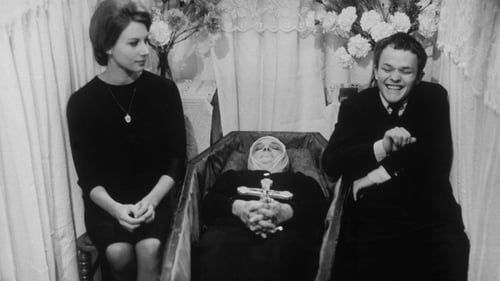
Writer
Ale, a deeply disturbed young man subject to seizures, benignly decides to murder members of his dysfunctional family for altruistic reasons.

Director
Ale, a deeply disturbed young man subject to seizures, benignly decides to murder members of his dysfunctional family for altruistic reasons.

Writer
At the centre of the narrative, which continues and deepens the themes of blame and punishment, the fall of a leader, Juniper.

Director
At the centre of the narrative, which continues and deepens the themes of blame and punishment, the fall of a leader, Juniper.

Writer
Children playing on a graveyard.

Director
Children playing on a graveyard.

Story
For trying to seduce the boss's wife, a young delinquent is punished by gangsters.

Screenplay
For trying to seduce the boss's wife, a young delinquent is punished by gangsters.

Director
For trying to seduce the boss's wife, a young delinquent is punished by gangsters.

Writer

Director

Screenplay
The story of Edgardo Mortara, a young Jewish boy living in Bologna, Italy, who in 1858, after being secretly baptized, was forcibly taken from his family to be raised as a Christian. His parents’ struggle to free their son became part of a larger political battle that pitted the papacy against forces of democracy and Italian unification.

Director
The story of Edgardo Mortara, a young Jewish boy living in Bologna, Italy, who in 1858, after being secretly baptized, was forcibly taken from his family to be raised as a Christian. His parents’ struggle to free their son became part of a larger political battle that pitted the papacy against forces of democracy and Italian unification.
